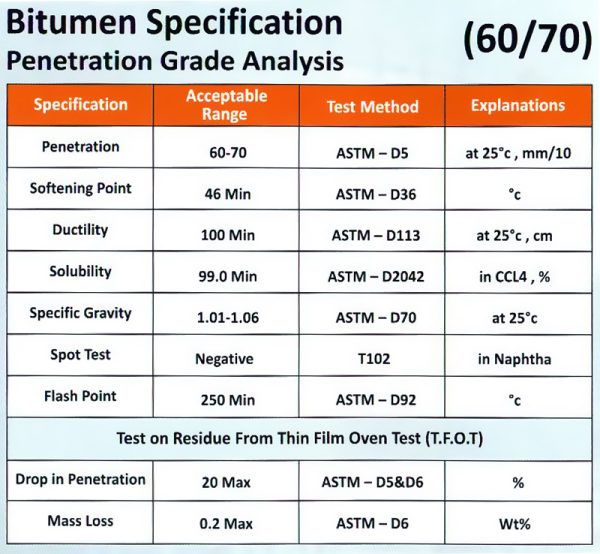
Penetration grade is a widely accepted classification system used to describe the consistency and hardness of bitumen — a crucial material in road construction, paving, and waterproofing applications. This grading system is determined by how deep a standard needle penetrates a bitumen sample under controlled temperature, time, and load. The result, measured in tenths of a millimeter, reflects the softness or hardness of the bitumen.
In the standard penetration test (as defined by ASTM D5-18), a needle weighing 100 grams with a 0.1 mm diameter is applied vertically to the bitumen surface for 5 seconds at a temperature of 25°C. The depth it penetrates defines the bitumen’s penetration value. Grades typically range from 10 to 500 – the higher the number, the softer the bitumen. Softer grades are better suited for hot climates due to their flexibility, while harder grades are ideal for cold regions where resistance to cracking is essential.
This grading system is key in selecting the right type of bitumen for specific climates and applications. The penetration value affects vital performance factors such as stiffness, elasticity, adhesion, and resistance to deformation. Choosing the correct grade ensures long-lasting infrastructure and reliable results across diverse environmental conditions.

